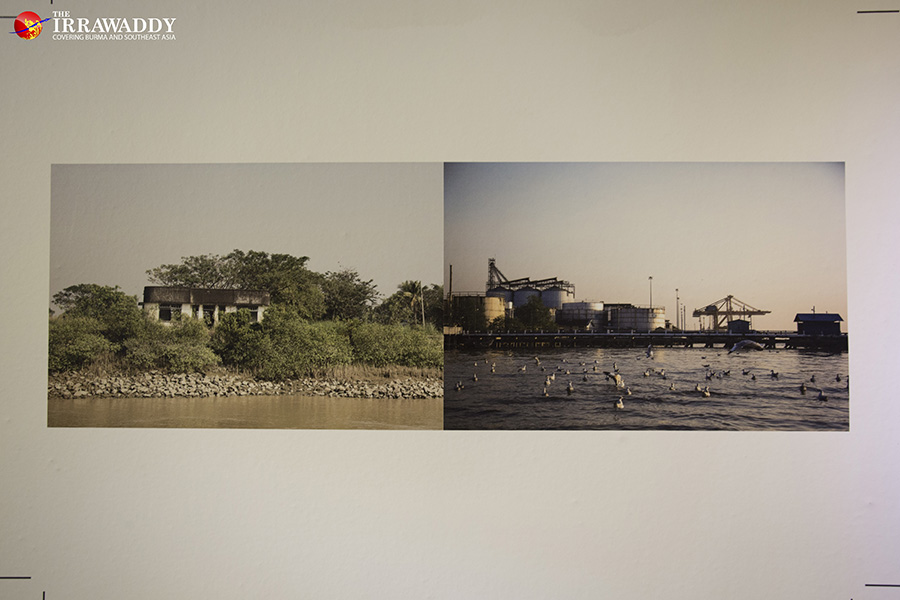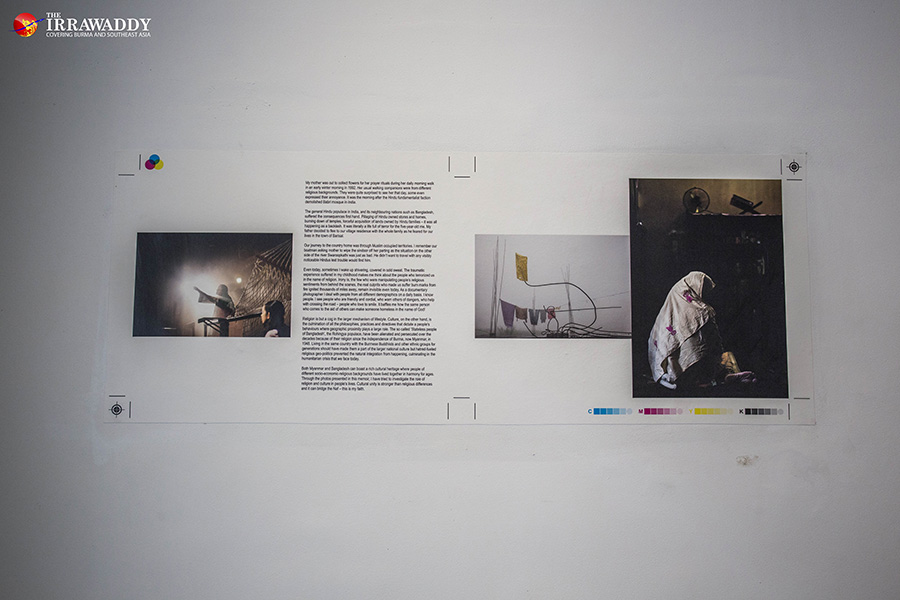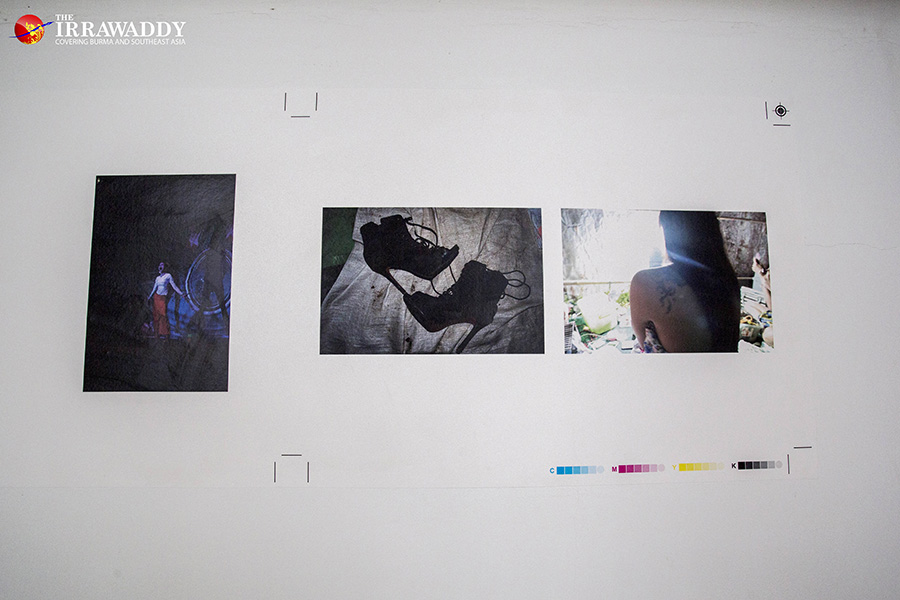YANGON—A photographic art exhibition opening this weekend at Myanmar Deitta with a project presentation will show to the public the results of a cultural and artistic exchange program between Yangon’s all-women photography collective Thuma, and its Dhaka-based equivalent, Kaali.
“Bridging the Naf” culminated in a series of zines combined to make a photo book created collectively by the Myanmar and Bangladeshi photographers dealing with the issues of identity, respect, hope, conflict and acceptance in society in the two countries as told through their photography.
Thuma Collective is a photography collective of five Myanmar women photographers that aims to introduce and promote the visual storytelling style of photography and to grow an interest among the members and those who attend their events in more long-form visual stories. They regard themselves as storytellers, not photojournalists.

“For every project, two photographers—one from the Myanmar side and one from the Bangladeshi side—worked together. It was a journey for both of us. We solved problems, we made decisions, we made compromises. Maybe we have common ground, maybe we have diversity—this is the way we exchanged culturally, socially and artistically,” said Yu Yu Myint Than, project leader for the Myanmar side of the program.
The plan for the project was for the Bangladeshi photographers to visit Yangon first for a series of events and workshops and to start the photography projects with their Myanmar counterparts before the Myanmar photographers visited Dhaka for a similar series of events.
“We had never been to Bangladesh, even though we are neighboring countries, and they had never been here. Actually, both sides only had assumptions [about the other]. The basic idea of the project was we really wanted to have a physical exchange,” said Shwe Wutt Hmone, another member of Thuma Collective.
However, after the Kaali Collective photographers completed their Yangon trip and it was time for the Thuma photographers to visit Dhaka, and after much questioning by Bangladesh immigration officials, and guarantees that they would not do any journalistic work on the trip, visas for the Myanmar women were denied without any explanation.

“When we asked them why they said, ’This is a question not to be answered’,” said Yu Yu Myint Than.
In Yangon, the Bangladeshi photographers were surprised by how safe they felt in the city; how they could walk around freely after dark; and that they didn’t need to hide to drink a beer. Some of the photographers found the LGBT community here surprisingly accepted and one decided to focus on that aspect of society for her project.
For Yu Yu Myint Than, the project was also about exploring the countries’ relations beyond the well-reported issue of the Rohingya crisis, which has defined conversations on and between the neighbors for almost two years. They wanted to investigate the similarities, differences and common grievances between the two countries from a photographer’s perspective.
“When I was in Bangladesh, my former colleague Wa Lone was arrested and when I came back here, my dear teacher from Bangladesh, Shahidul Alam, was arrested—both for doing what they do,” she said. “I feel like instead of [focusing on the] different things, we should notice that we have shared grief, shared anger; we have a lot of shared things and those things we cannot know without the experience of meeting them [Bangladeshi photographers] and talking with them.”

Yu Yu Myint Than sees how collaborating with photographers from a more “established” photography scene in Dhaka can bring new ideas and move photographic style norms away from the reportage style and “broaden the horizon of the photographic scene in Myanmar,” which is part of Thuma Collective’s vision.
The exchange wasn’t always smooth: Shwe Wutt Hmone said the Kaali photographers were eager to discuss the Rohingya crisis but, though they consider themselves outspoken and open-minded women, the topic was something the Thuma members habitually avoided.
“That was a good opening when we had our first group meeting. They all were eager to open this discussion. In that moment, it reminded all of us of the differences and issues that we needed to reflect on and talk about,” said Shwe Wutt Hmone.
The Myanmar photographers haven’t made it to Bangladesh yet, so the project is ongoing and another attempt to get visas should see them complete the cultural and photographic exchange with a visit to Dhaka and similar events hosted by their Kaali counterparts by the end of the year.
The “Bridging the Naf” book will be launched with a presentation of the photographic dialogue at an opening event at 5 p.m. on Saturday June 22, and the associated exhibition will run for two months. Check the Myanmar Deitta page for announcements of workshops and other events associated with “Bridging the Naf”.

















